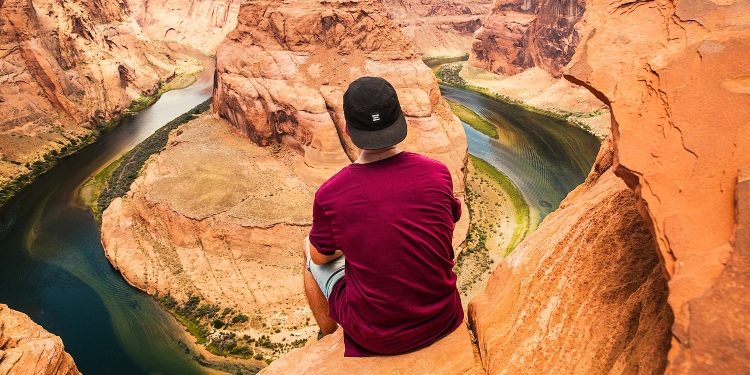In today’s world, people are increasingly seeking unique and memorable experiences rather than just accumulating possessions. This trend has led to the growth of the experience-based industry, which offers consumers the opportunity to create lasting memories through a wide range of activities and services. In this article, we will take a closer look at the growing popularity of experience-based offerings and explore the reasons behind this trend.
The Rise of the Experience Economy
The experience economy is a term coined by Joseph Pine and James Gilmore in their book “The Experience Economy: Work Is Theater & Every Business a Stage.” In the book, they describe how the economy is shifting from a goods-based economy to an experience-based economy. Instead of just buying goods and services, consumers are increasingly looking for experiences that provide emotional and memorable value.
The experience economy includes a wide range of offerings, from adventure travel and cultural experiences to luxury dining and spa services. It is driven by the desire to create unique and memorable experiences that are personalized to individual preferences and interests.
Reasons for the Popularity of Experience-based Offerings
There are several reasons behind the growing popularity of experience-based offerings. One major factor is the desire for authenticity and meaningful connections. In a world where many experiences are mediated by technology, people are seeking out real-world experiences that allow them to connect with other people and with the environment in a more meaningful way.
Another factor driving the popularity of experience-based offerings is the desire for personalization. In today’s world, people are increasingly seeking out experiences that are tailored to their individual preferences and interests. Experience-based offerings allow consumers to create customized experiences that reflect their unique tastes and preferences.
Finally, the growing popularity of experience-based offerings can be attributed to the desire for personal growth and self-discovery. Many experiences offer the opportunity to learn new skills, challenge oneself, and explore new perspectives. These types of experiences can be transformative and can have a lasting impact on a person’s life.
Types of Experience-based Offerings
The experience economy includes a wide range of offerings, from adventure travel and cultural experiences to luxury dining and spa services. Here are a few examples of popular experience-based offerings:
Adventure Travel
Adventure travel is a type of travel that involves outdoor activities and exploration. It often involves activities such as hiking, rafting, kayaking, charter a boat, and rock climbing. Adventure travel allows people to push their physical and mental limits and to explore new and remote places.
Cultural Experiences
Cultural experiences allow people to learn about and engage with different cultures. This can include activities such as visiting museums, attending cultural festivals, and taking cooking classes. Cultural experiences can broaden a person’s horizons and provide a deeper understanding of different cultures and ways of life.
Food and Drink Experiences
Food and drink experiences allow people to explore different cuisines and beverages. This can include activities such as wine tastings, cooking classes, and farm-to-table dining experiences. Food and drink experiences can be a great way to connect with other people and to experience new and unique flavors.
Wellness Experiences
Wellness experiences focus on promoting physical and mental well-being. This can include activities such as yoga retreats, spa services, and meditation classes. Wellness experiences can be a great way to relax and recharge, and to focus on personal growth and self-improvement.
Entertainment Experiences
Entertainment experiences offer unique and memorable ways to enjoy music, theater, and other forms of entertainment. This can include activities such as attending a live concert, visiting a theme park, or participating in an escape room. Entertainment experiences can be a great way to create lasting memories and to have fun with friends and family.
The Impact of Experience-based Offerings
The growing popularity of experience-based offerings has had a significant impact on industries and businesses across the world. It has led to the creation of new business models and the transformation of traditional industries. For example, the travel industry has shifted from offering standardized packages to creating personalized and customized experiences for individual travellers. Similarly, the restaurant industry has moved from focusing solely on food to providing a full sensory experience that includes ambiance, I, and service.
The Impact of the economy can also be seen in the rise of the sharing economy. Platforms such as Airbnb and Uber offer experience-based services that allow people to connect with others and to access unique and personalized experiences. These platforms have disrupted traditional industries and have created new opportunities for individuals to participate in the experience economy.
The experience economy has also had a significant impact on the environment and sustainability. Many experience-based offerings, such as adventure travel and ecotourism, have a strong focus on environmental conservation and sustainability. This has led to the development of new technologies and practices that reduce the impact of tourism and travel on the environment, as well as the production of eco-friendly products for consumers to enjoy, such as French hair pins made from sustainable materials.
Challenges of the Experience Economy
While the experience economy offers many benefits, it also presents challenges for businesses and consumers. One major challenge is the difficulty of creating authentic and meaningful experiences. In order to create truly unique and memorable experiences, businesses must be able to understand and anticipate the needs and desires of individual consumers.
Another challenge of the experience economy is the cost. Many experience-based offerings, such as adventure travel and luxury dining, can be expensive and inaccessible for many consumers. This can create a divide between those who can afford to participate in the experience economy and those who cannot.
Finally, the experience economy can also present challenges for the environment and sustainability. Many experience-based offerings, such as adventure travel and ecotourism, can have a negative impact on the environment if not managed properly. Businesses must be able to balance the desire for unique and memorable experiences with the need to protect the environment and promote sustainability.
Conclusion
The experience economy is a growing trend that reflects the desire of consumers for unique and meaningful experiences. It is driven by a desire for authenticity, personalization, and self-discovery. The experience economy includes a wide range of offerings, from adventure travel and cultural experiences to luxury dining and spa services. It has had a significant impact on industries and businesses across the world, and has led to the development of new technologies and practices that promote sustainability and environmental conservation. While the experience economy presents challenges for businesses and consumers, it also offers many benefits and opportunities for personal growth, self-discovery, and creating lasting memories.
David Prior
David Prior is the editor of Today News, responsible for the overall editorial strategy. He is an NCTJ-qualified journalist with over 20 years’ experience, and is also editor of the award-winning hyperlocal news title Altrincham Today. His LinkedIn profile is here.





![7 Best POS Software in the UK [2026 Edition]](https://todaynews.co.uk/wp-content/uploads/2026/02/7-Best-POS-Software-in-the-UK-2026-Edition-360x180.png)







































































